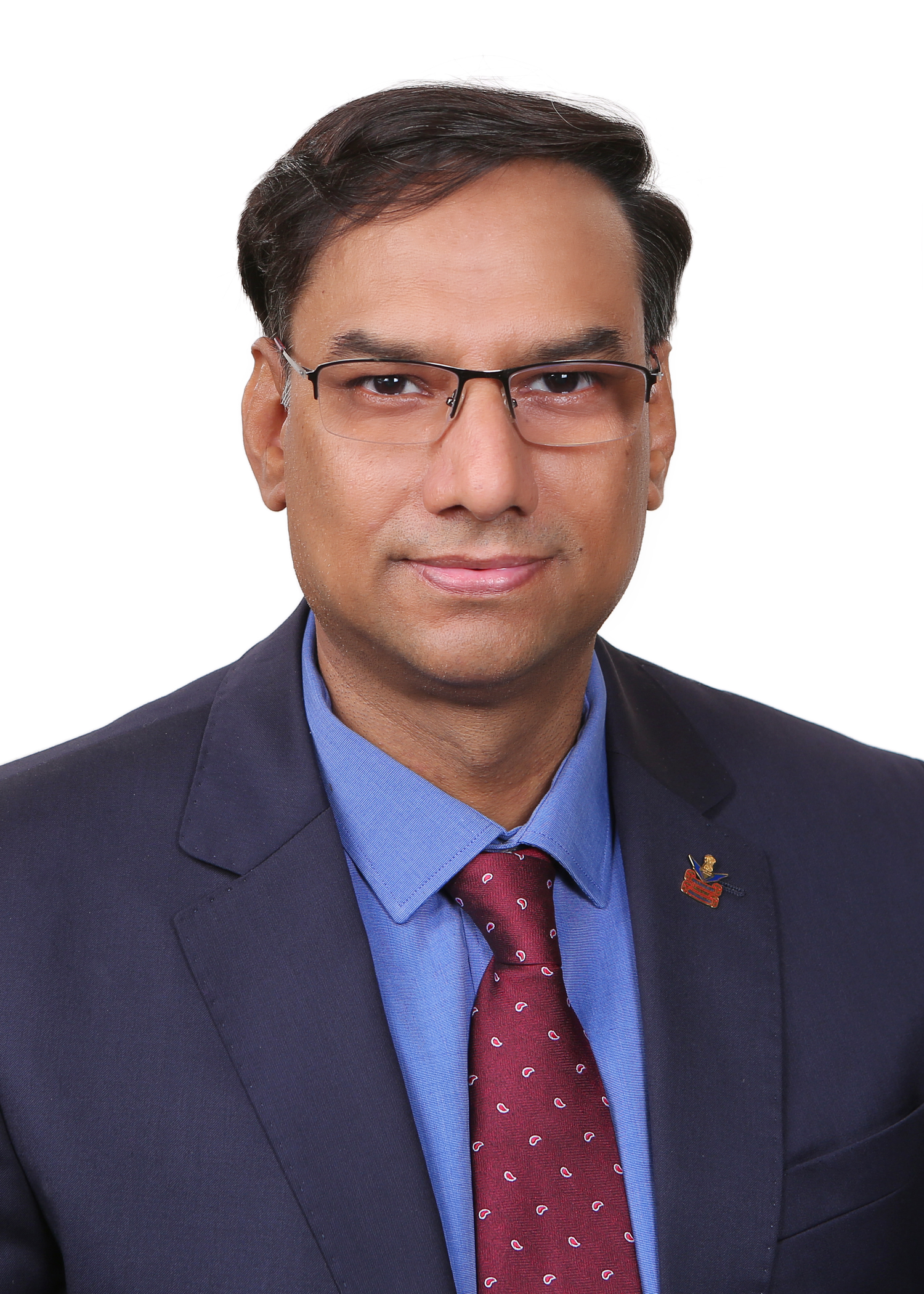
Sh. R K Siddhartha, ITS

Sh. R K Siddhartha, ITS
“When all terrestrial communications are down, DCPW will ensure a seamless communications to all PPDRs across India.” The inspectorate of Police Wireless, as it was known at the time of its inception, came into existence on 19th February 1946, under the dual control of the Home Department and the DG Post and Air. It was made Directorate of Coordination Police Wireless in 1950, and was brought under the control of the Ministry of Home Affairs. The need for Central Coordination and Control of the Country’s Police Radio Communication was recognised by Department of Posts and Air in 1942. The urgency of establishing organisation like DCPW, was duly brought up, in the CID Conference (1942), Inter Departmental Board (1944) as well as in the IGP Conference (1946). With the active pursuance of Intelligence Bureau, the office of Wireless Inspectorate came into being just before the Independence. Lt Col T E Dobson, of the Royal Signals, was the first head of the Inspectorate. The initial responsibility of the Inspectorate was to advise the provinces on
1. Technical matters of Police Wireless,
2. Procure apparatus,
3. Advice on general layout of wireless system,
4. Train the operators,
5. Liaising with different technical departments,
6. Tour the provinces to see their wireless layout and give them necessary advice.
The equipment used in those days were, Wireless telegraphy or Morse Code! Later on, an inter provincial grid was established through HF links. From the 70s, the use of Teleprinter Electromechanical Devices, Automated Message Switching System, Packet Radio and EPABX using PSTN Modems; to Microwave Links, Digital Radios, Optical and Satellite Links, DCPW has come a long way.
The Directorate operates POLNET 1, a VSAT based satellite communication system for the PPDR agencies, which is now being replaced by POLNET 2, which is getting commissioned by December, 2019.
Plans are afoot to start Digital Satellite Phone Terminals (DSPT), for the welfare of our men. Earlier DSPT system stopped functioning abruptly, since 13th May 2019, causing immense hardship to our men deployed at remote locations with no alternate means of communication, other than the DSPTs.
We have been successful in providing cheapest Satellite Phone Call Rates @Rs 1/- per call, in the world, to our men, deployed at the remotest locations, to compensate for the loss of DSPT phones.
The future of broadband PPDR (Public Protection and Disaster Relief) will soon be a reality in India, as the Directorate is in hectic parley with stakeholders in harmonizing bands for broadband PPDR. The Directorate is seized with the drawback of current limitation of lower data rate and bandwidth in the current setup. With “The National Committee for Standardisation of Communication”, the Directorate is exploring ideal communication system in a geographically diversified subcontinent like India. For the North-Eastern States, the job has already been accomplished.
A Central Police Radio Training Institute (CPRTI) was established in 1971 to train the Police Officials of not only India but other countries as well, in operation and maintenance of communication equipment and CIPHER system used by the police organisations. We have successfully established Regional Police Wireless Training Centre at Chandigarh, and Centres at Kolkata and Bengaluru is going to be opened before the end of 2019, as the necessary infrastructure is being built up.
DCPW successfully organised the All India Heads’ of Police Communication Conference at the Vigyan Bhawan in 2018 and received overwhelming response from states and CAPF, so now, we have planned annual conferences to bring in synergy and coordination among the different organisations for effective communications.
There are plans afoot to start our ISPW Station in Union Territory of Ladakh.
DCPW has been designated to monitor the Breaches of Radio Communications and has also been designated Nodal Agency for the Certification and Auditing of Communication Equipment for the ease of procurement on GeM by the Government Agencies.
We are in the process of accelerating the digitization process in the Police Wireless Organisations by indentifying standardization and optimizing the Wireless Technology.
Thank you!
(Sh. R K Siddhartha, ITS)
Director DCPW
Any comment or suggestions may kindly be mailed to director.dcpw@nic.in